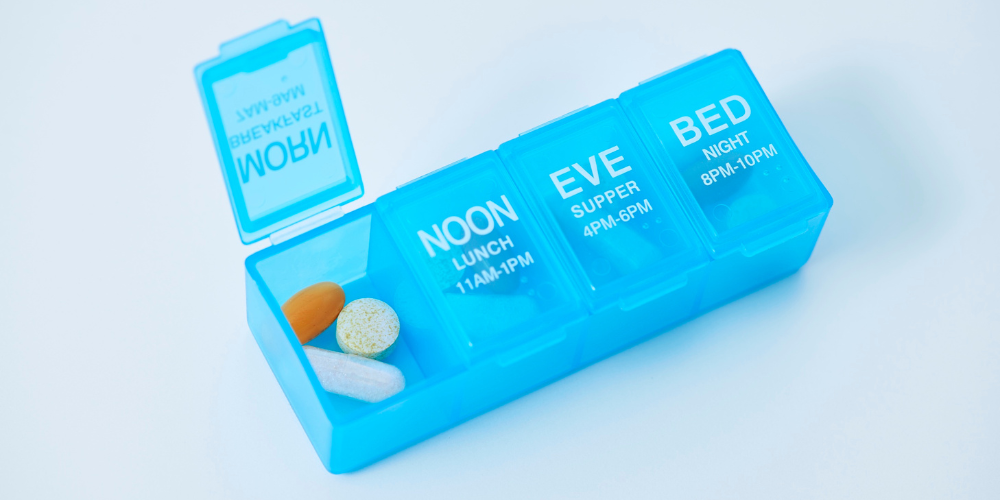Collagen is the most abundant protein in the human body, helping to form connective tissues like skin, cartilage, and tendons. From our mid-twenties onward, natural collagen production begins to slow down, which can impact how our skin and joints feel over time.[1]
Many people choose to include a collagen supplement in their routine to support skin elasticity, joint function, and overall wellbeing. Some of the areas collagen is commonly associated with include [5]:
- Skin hydration and structure
- Supporting healthy hair and nails
- Maintaining joint and bone health
- General connective tissue function
So, when should we be taking collagen supplements during our day? Keep reading to find out.
What Is Collagen?
Collagen plays an important role in the body. It’s rich in amino acids that help maintain the structure and flexibility of connective tissues like skin, joints, and ligaments.* Often called the “glue” that holds the body together, it provides the scaffolding for many tissues.
Collagen peptides are a hydrolysed form of collagen, made from the same amino acids and commonly used in supplements as part of a wellness routine.[2,4]
When Should I Be Taking My Collagen?
Suppose you don't want to deal with the hassle of mixing your collagen into something every day (powder getting everywhere, cleaning up the dishes afterwards, stirring collagen powder clumps in your morning smoothie that just don’t want to dissolve). In that case, collagen powder-filled capsules are the best option for you.
But, when is the best time to take collagen?
Honestly—whatever time works best for you! Some people prefer taking it at night, others in the morning on an empty stomach. Ultimately, the best time is the one that fits your routine and helps you stay consistent.
With our Collagen Complex, we recommend you take 2 capsules, preferably at mealtime, whether that be your morning breakfast, lunchtime, or your evening dinner, with water.
We believe health doesn’t need to be complicated. That’s why we create simple, quality formulas using thoughtfully selected ingredients. Our product features Hydrolysed Marine Collagen (Type I), made from sustainably sourced fish byproducts. Hydrolysed collagen is broken down into smaller components—called peptides—making it easier to digest as part of your daily routine.*
Looking for more simplified ways to support your wellness? Discover our range of maximum potency supplements, made with clinically-proven ingredients and designed to deliver real health benefits!
Resources:
- David M. Reilly, & Jennifer Lozano. (2021, January). Skin collagen through the life stages: importance for skin health and beauty. Plastic and Aesthetic Research. Retrieved from https://oaepublishstorage.blob.core.windows.net/31d21692-1f43-4888-b39d-c1e25032fcda/3863.pdf
- Snedeker, J. G., & Gautieri, A. (2014). The role of collagen crosslinks in ageing and diabetes - the good, the bad, and the ugly. Muscles, ligaments and tendons journal, 4(3), 303–308. https://www.ncbi.nlm.nih.gov/pmc/articles/PMC4241420/
- Gauza-Włodarczyk, M., Kubisz, L., & Włodarczyk, D. (2017). Amino acid composition in the determination of collagen origin and assessment of physical factors effects. International journal of biological macromolecules, 104(Pt A), 987–991. https://doi.org/10.1016/j.ijbiomac.2017.07.013
- León-López, A., Morales-Peñaloza, A., Martínez-Juárez, V. M., Vargas-Torres, A., Zeugolis, D. I., & Aguirre-Álvarez, G. (2019). Hydrolyzed Collagen-Sources and Applications. Molecules (Basel, Switzerland), 24(22), 4031. https://doi.org/10.3390/molecules24224031
- Snyder, C. (2020, September 18). How much collagen should you take per day? Healthline. Retrieved from https://www.healthline.com/nutrition/how-much-collagen-per-day#bottom-line

